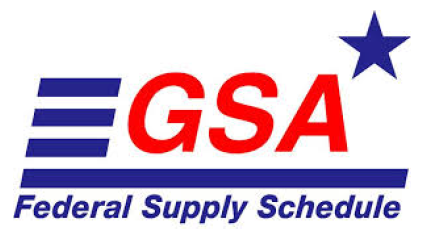
It’s no secret the Defense Department and other agencies have been using other-transaction-authority acquisitions more than more. One reason is they help agencies get things done faster. And easier without the conditions of regular buys under the Federal Acquisition Regulations. Plus, OTA acquisitions come without the headaches of protests. Or do they? We get the latest from Haynes Boone procurement attorney Zach Prince.
Tom Temin This has been a worry. Are these protest-proof, because they’re not under the FAR? And tell us some of the latest developments.
Zach Prince Thank you for having me, Tom. So this has been an evolving area for a while, and it’s never really been the case that they’re protest proof. It’s just where you bring the protest. Do you bring it in the court of federal claims, which understands how protests work? Or do you have to go to some district court somewhere, which often has no idea what a government contract is, and they have to get sorta smart really fast, with all their other cases, and there’s just no predictability when you do that. So, there was a SpaceX case a while back, about five years ago. That was found to not be properly in the Court of Federal Claims because it really wasn’t a regular purchase of something for the government. It was the government funding commercial space launch industry, and the government can do that through OTAs. So that was really not a procurement, but there have been a couple of cases since then, and almost all of them have found that the Court of Federal Claims is the place to go. This most recent iteration was a Raytheon case. Raytheon brought a protest involving an OTA for missile defense technology, where Raytheon and Northrup were the two participants in this multi-phase, first conceptual development, then going on to ultimately production for major missile defense technology. And Raytheon didn’t get to continue with the program after a few years.
Tom Temin Right, and the thing you did not say is that OTAs are not protestable to the Government Accountability Office, like FAR procurements.
Zach Prince Well, there’s been some development there too, so stay tuned for what GAO finds. They’ve been taking jurisdiction more with some aspects of OTAs, so that is still evolving. But this all drives the government crazy, at least from what I’ve seen and heard from largely scuttlebutt from my counterparts in the government. They think of OTAs as a way to really save time, and it is. But part of that, in their view, is that you shouldn’t be able to just protest like you do with everything else. The problem is we’re talking about billions of dollars and there has to be some oversight process because otherwise it’s just too abusable.
Tom Temin Well, yes. And the other issue in the cases you cite, SpaceX, for example, Raytheon and Northrop, those are big companies. Now, there could be, you could argue that, well, because commercial space is something that’s new in the sense of providing launch services — well, it’s not that new, but there’s been a consortium, two companies came together to offer commercial launches. Now it’s burgeoning, there’s three or four entrants in that field — but Raytheon and Northrop have been making missiles and missile-related stuff for decades, almost 75 years or so. And yet people think of OTA as related to innovative companies new to the Defense Department for really prototypes of new technology. That doesn’t sound that way when you’re talking about space launches and missiles. So maybe to the extent that they deal with big established contractors, you’re gonna get the protests.
Zach Prince Yeah, that’s a fair way to put it, although to be fair, this is a really innovative issue. The problem here is Congress told the Missile Defense Agency that they had to figure out a way to detect and intercept hypersonic intercontinental ballistic missiles, and that is really freaking hard. It’s a challenge that we’ve been thinking about for decades and decades, and now push is coming to shove, where Congress says you have to have something that is deployed by 2029 — which is not gonna happen, by the way. There’s no way — but they at least have to make progress on it. So DoD wants to come up with a way to incentivize the best of the best minds in this area who are able to bring things to scale. And let’s be real. I mean, there are some really interesting defense players that are non-traditionals, but none of them can bring a program to scale like a Lockheed, a Northrop, or a Raytheon. They just don’t have that experience. So if you wanna develop some cool tech, that you can actually get out there, you’ve gotta go with the big tier one primes.
Tom Temin We’re speaking with procurement attorney Zach Prince. He’s a partner at Haynes Boone. And we should also note those companies have some good engineers too. They’re capable of innovation. They just didn’t go with a startup. But if you are getting a competition for something this strange, like intercepting hypersonics — which means you have to be hypersonic, I would guess — then why do they need the OTA? Because it’s a long-term program. It’s a lot of development. What does OTA, what’s the advantage of going that route?
Zach Prince It’s fast and it’s flexible. And they structured this in a really unique way where it’s got all these strange phases where they get to down select at essentially their choice. You just don’t have to deal with the FAR and DFARs. You don’t have to deal with the same type of lengthy market research processes. And you could structure it however you want in a way that business will be much more incentivized to participate and the agency can have flexibility to stop and go when they want to and when they need to.
Tom Temin And what would the grounds for protest be then? Because in regular FAR procurements, typically, it’s because the government didn’t follow its own stated criteria for the contract or its own stated procedure. But in OTA, it’s much more open-ended in what the government is asking for. So what do the grounds say for Raytheon to protest to the court?
Zach Prince It would largely be the same types of protest grounds. Here, Raytheon was claiming that the Missile Defense Agency improperly evaluated the proposals using unstated selection criteria. So it’s the same sort of things that you would see in a court of federal claims, FAR-covered protest where they’re saying that the agency harbored this secret desire to have a particular tech and solution to the problem that they didn’t put in the competition materials. They also said that there are some decrements that are based on perceived cost risks that were unequal. It’s the same sort of disparate treatment and unstated evaluation criteria that will get the attention of any protest forum.
Tom Temin Is it also true that in some OTA procurements for developmental prototypes, you don’t know what the solution that you want is? In other words, if one of them proposed a phosgene-powered rocket and the other a nuclear neutron-powered rocket — I’m making those words up — the government could say, you know, ‘I like the neutrons better than the phosgene,’ then how can you protest that because the government didn’t know what it wanted until it saw what was presented.
Zach Prince Well, in that case, you can’t really protest, but what Raytheon is arguing is that the government had its finger on the scale in favor of a particular solution that they just didn’t say. And they tell this story that shows up in this decision here. And remember, this is just a motion to dismiss. So this is taking everything Raytheon says as true, that the Japanese defense agency which started working with DoD on this program favored a particular solution for reasons that really weren’t based necessarily on the technical merits, and that this was the reason that DoD favored Northrop’s solution over Raytheon. If you look at the Missile Defense Agency, their response is, well no, Raytheon’s solution actually has much more potential collateral damage, and so we disfavor that solution for that reason. I’m sure that there’s a lot that’s missing from this decision in classified materials that we’re not gonna know and shouldn’t know. But the agency still does have a lot of discretion. It’s just a question of whether they have to treat you fairly and on an even playing field, and they do.
Tom Temin Right, so fair enough, but then the protest does kind of neutralize some of the advantages of going OTA if you can make an award in six months on something and then it takes two years for the court to sort it all out.
Zach Prince Yeah, it does. And I suspect that until Congress weighs in, or I guess the federal circuit, they could weigh in and say there’s just no jurisdiction here. But this has really got to come from Congress. I think you’re going to see a lot more latitude given to the agencies to continue performance while these things continue. GAO, you’ve got a hundred days. So assuming GAO starts taking jurisdiction, at least that resolves pretty quickly. You’re right, the court can take forever. Usually at the court, the government just agrees to stay performance or award until you’ve got the thing resolved, but I don’t think you’re gonna get that with some of these high speed, high value important procurements.
Copyright
© 2025 Federal News Network. All rights reserved. This website is not intended for users located within the European Economic Area.




